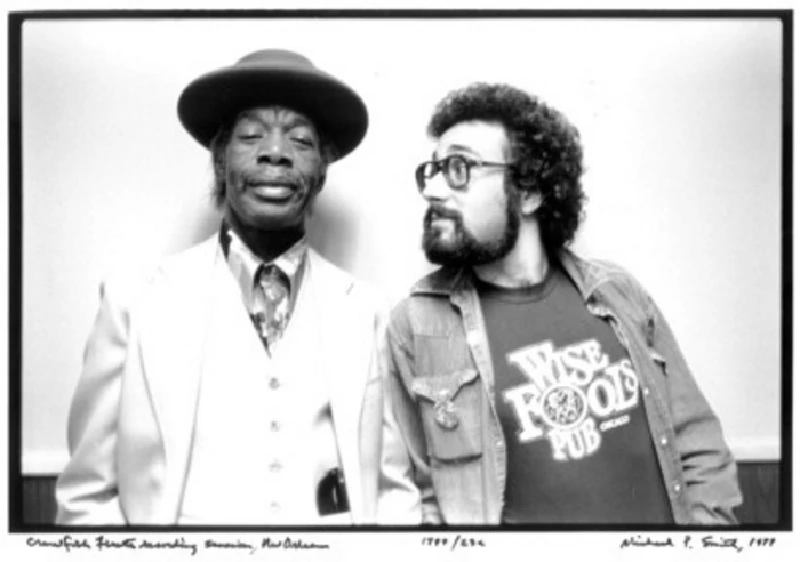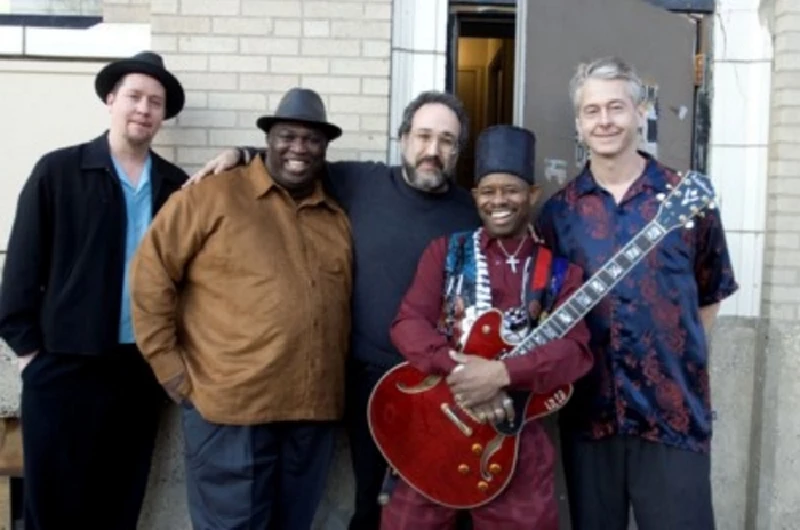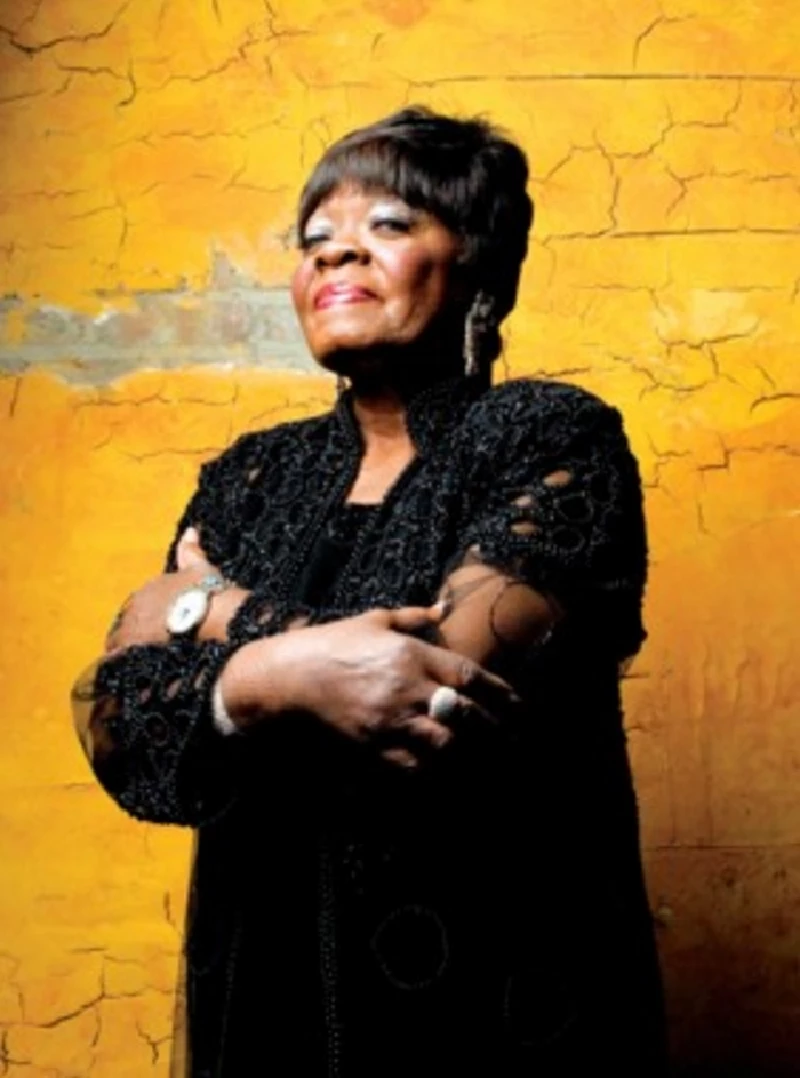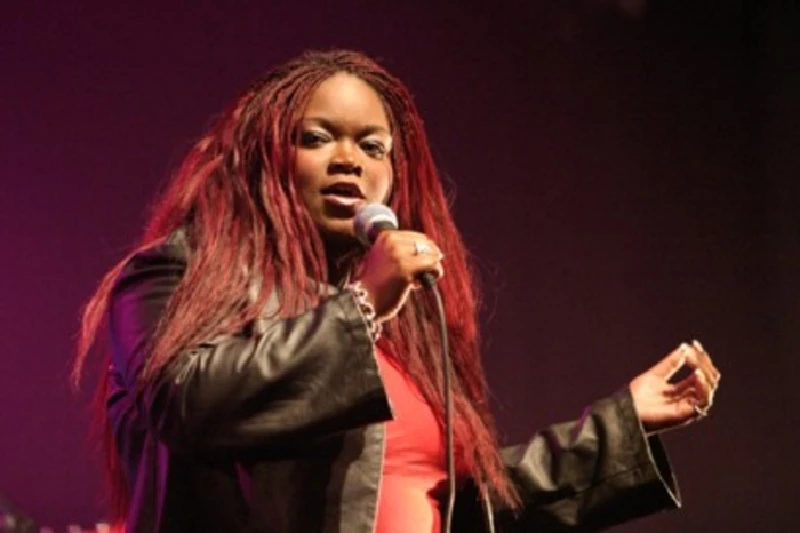Miscellaneous - Interview with Bruce Iglauer Part 2
by Lisa Torem
published: 5 / 11 / 2010

intro
while in the second part he discusses how against musical recession it continues to survive
PB: The film, ‘Cadillac Records’, brought attention to Chess Records. Do you anticipate Alligator Records being immortalized through film or do you plan to write an autobiography at some point? Oh, and in terms of film, who would play Bruce Iglauer? BI: No, I don’t think there will be an Alligator movie; our story is not as dramatic as the Chess story. Years ago I would have told you that I should be played by the then-young Richard Dreyfus. Now I don’t know a young actor who combines the sort of wired, driven quality that I have along with the smart-aleck that I sometimes am. I can certainly say that Adrian Brody in ‘Cadillac Records’ had almost nothing to do with Leonard Chess, who was more like a short Jewish James Gandolfino—a West Side tough guy. He needed to be that to survive in the record business at that time. I would have failed miserably; I don’t play hardball that well. The other Chess movie, ‘Who Do You Love?’, got it a little righter. At least the other Chess brother, Phil, was a character. Of course it hardly got distributed, maybe because Beyonce wasn’t in it. PB: Some critics claim that musicians such as Stevie Ray Vaughan and Robert Cray created a blues revival period in the 1980s. Do you agree? BI: They certainly sparked a lot of interest in blues. The word “revival” is a tough one, as it implies bringing people back to the blues, but they helped create a new audience for people who knew little or nothing about blues, especially Stevie. His death was a great blow; no one since has really brought in new blues fans. Stevie had a lot of imitators, good and bad (mostly bad). Robert is a great talent but didn’t have the same kind of pure physicality in his music that Stevie did. But Robert is a great and subtle player and a wonderful singer. As Tinsley Ellis said to me about the current music scene—the only thing worse than a world full of Stevie Ray imitators is a world without them. PB: How do you make production decisions with your artists? For example, when do you suggest that an artist do a live versus a studio recording? How do you work with an artist in terms of selecting album tracks? At what point would you consider a “re-issue?” BI: It varies from artist to artist. Some of our artists, like Marcia Ball, have a very clear idea of what they want to do with their albums, write and find their own songs, select their own producers (subject to my approval, but Marcia and others generally make good choices). Other artists look to me to produce .). Some look to me and/or my staff to bring them songs. Janiva Magness has done some wonderful interpretations of songs that we’ve presented to her. But when she doesn’t like a song, well, that’s that. Sometimes I’ve written lyrics with artists like Smokin’ Joe Kubek & Bnois King, as well as Lil’ Ed and Michael Burks. In the past I’ve written with Kenny Neal, Carey Bell, and Katie Webster and recently with Guitar Shorty. I wouldn’t, however, call myself a ‘real’ songwriter like Dennis Walker and Bruce Bromberg, who wrote some of Robert Cray’s best songs, or the great writers who wrote for Ray Charles, or Willie Dixon, or Rick Estrin. All those were or are masters. But finding or writing new blues-based songs that don’t tread completely familiar ground is tough, so when it’s time to write blues songs about social networking or the economic downturn, I often have to do it myself. As far as live albums, I like making them and listening to them, but they are a tough sell. Radio doesn’t like them as they consider them “filler” between real albums. I only record live albums when the artists have multiple nights in the same venue and can get relaxed and used to the sound and feel of the room. Usually the magic happens on the second or third night. There are exceptions—I have an Albert Collins album called ‘Live in Japan’that was recorded in one set (not one night—one set). PB: How does Alligator operate on a nuts and bolts level? Are you primarily responsible for making financial decision, doing public relations and the production or do you delegate tasks to others? BI: I have a staff of fifteen very good people who do plenty on their own. A sales manager, two publicists, two radio promo people, a new media/new technology director, an international sales manager, a guy who handles both our music publishing and our TV/film/ad placements, a financial controller, a mail order director, an art director/designer, a general office person, a warehouse manager and warehouse worker. All of them would, however, tell you that I’m very much of a control freak. I approve most expenditures, negotiate all deals and write the contracts (I’m not a lawyer but I often pretend to be one), proofread and sometimes rewrite almost all the press releases and artist bios. I’m also responsible for all of our on-line sales deals, including making and supervising our deals with Itunes and Amazon’s download service, Rhapsody, Napster, HD Tracks, etc. etc. And, as I said, I often produce the records or bring songs to artists. This week I supervised the mastering of our new ‘Roomful of Blues’ album, though I didn’t produce it. The producer did a few of small remix tweaks to please me. Last week I did the final songs choices (with input from Shemekia and the Alligator staff) and supervised the mastering for our new Shemekia Copeland ‘Deluxe Edition’, which is like a fancy ‘Best Of’.’This weekend I’ll start choosing the songs for our two-CD 40th Anniversary Collection, that we’ll release in 2011. As I write this, I’m listening to submitted demos and also first round entries for the Blues Music Awards, for which I’m a nominator. PB: Bruce, do you still go out to clubs to seek out new acts or do you count on acts submitting CDs to you? BI: I go out to clubs fairly often, though I admit not as often as I used to. Last weekend I flew to L.A. to look at an artist who sent a good demo and came recommended by a friend with good ears. Right now our roster is quite full and I’m not looking hard for another artist, but that doesn’t mean I’m not always listening. I love going out to hear music in clubs but I don’t always feel as lively the next day as I’d like to. PB: Who are you currently listening to? Do you perform or write music or is that better left to others? BI: You mean am I listening to something for pure pleasure? That happens rarely. I have the new Paul Thorn album in my “get to it” pile on my desk, and I have an old Delbert McClinton album I want to listen to again. When I need to soothe my soul, I listen to Elmore James. But mostly I listen to submitted material or projects I’m involved with. Right now I’m listening to June demos. PB: Back in the day, I read that you sold CDs from the trunk of your car. Do you miss those days or are you glad they’re over? BI: Both. I terribly miss the first artists on Alligator—Hound Dog Taylor, Big Walter Horton, Son Seals, Koko Taylor and Albert Collins, among many others. It was a one-man adventure in those days, and I was making it up as I went along. Somehow I managed to make some good decisions, I guess. I sure miss record stores, especially stores run by real music fans who wanted to turn their customers on to music they believed in. There was a period of time between about 1984 and 1998 when Alligator was financially secure enough so that I could release some albums that I knew had little sales potential just because I liked them and wanted my company name and logo on them. Now I have to make everything break even and make some kind of profit, as the older titles now are so hard to find in the few remaining stores that they don’t generate the kind of ‘safety net’ income that they used to. I’ve never seen it this hard for a record label. And many artists in my field of music are not equipped to be “do it yourself” labels. They need our help, support and finance to have careers. It’s a scary time for labels. And not all of us are about making a bunch of money. A lot of people at labels, even the majors, are very music-driven. Certainly most of the indie label folks I know are. And most artists are grateful for labels, as they open doors the artists could never open themselves, and bankroll their creative efforts. PB: You have worked with clients who are incredible showmen. I’m thinking about Buddy Guy, for example, who can work a room like nobody else can. Is it a challenge, though, to translate that charisma to a recording? BI: Yes, it’s very hard. By the way, I’ve never actually produced Buddy, though we’ve released two albums he recorded in Europe and he guested on one of our Koko Taylor albums. The studio is tricky with blues—you want to capture the live energy but you always want to have the chance to fix mistakes and re-do things that don’t work that the studio gives you. I like to record as live as possible, with everyone playing at the same time, and save as many live, spontaneous vocals and solos as we can. I like to have everyone in a situation where they can see each other and that feels like a gig. PB: What special memories do you have of working with your clients? BI: Studio memories? Hundreds of them, from musicians pulling out songs that I’ve never heard before and cutting them in one take to having everything fall apart when the band became completely drunk. The best blues records often make themselves, when the musicians have the same feel about the song and record it virtually live. Our Grammy-winning album ‘Showdown!’ with Albert Collins, Robert Cray and Johnny Copeland was like that. There was no rehearsal. They and we (the musicians, myself and my co-producer Dick Shurman along with the guys who usually produced Robert and Johnny at that time) worked up the arrangements in the studio, ran them down and cut them. With Lil’ Ed, I generally cut at least 20 songs and see what comes out best. I could write pages and page about great things that happened in the studio. That’s another interview. PB: The Holmes Brothers CD, ‘Feed My Soul’, charted number 1 on Billboard’s Blues Chart. What went into that project? How many artists can you successfully manage at any given time? BI: I had almost nothing to do with making that album. They and their producer, Joan Osborne, who is a dear friend of theirs, either wrote or chose the songs. I wasn’t there when the record was made and I didn’t even master it. All I did was release and promote it, and of course the Holmes Brothers have a magical communication between them from so many decades of making music together, and from growing up in the church while listening to blues and country music. How could I improve on what they already are? As far as how many artists we can manage to deal with, the answer seems to be between fifteen and twenty. As we publicize and work radio on every single artist gig in the U.S. and Canada, it takes a lot of human time. PB: If you could create a Million Dollar Quartet based on your favorite blues artists, who would be in the room for that one evening? BI: Wow…this is tough. If it were historical, I would pick Elmore James and Sonny Boy Williamson, who actually did play together, but not on record. I’d have Johnny Jones or Otis Spann on piano, maybe Odie Payne on drums, and perhaps Willie Johnson on second guitar. Alternatively, a group Big Walter Horton on harp with Pat Hare on guitar, Francis Clay on drums, maybe Junior Parker singing. Tommy Johnson with Louise Johnson (no relation) on piano would be two of my favorites from the Delta. Gatemouth Brown, Albert Collins and Johnny Guitar Watson trading off would be fun, with horns arranged by Johnny Board or Joe Scott. I can think of a lot of combinations. Of course I’ve done some of this on my own, bringing James Cotton, Junior Wells, Carey Bell and Billy Branch together for ‘Harp Attack!!,’ Lonnie Brooks, Long John Hunter and Phillip Walker for ‘Lone Star Shootout’ and of course the ‘Showdown!’session with Collins, Cray and Copeland. The blues is a very deep well; there is always someone new to hear or something new to learn about. It seems to be a very simple form of music, but it’s very subtle and there are hundreds of sounds and styles. I’ve been listening to it for forty-five years and still I’m making new discoveries. It’s sure been a great career and I’m looking forward to the next forty years or so. I’ve been incredibly lucky to live out my dream and have a career where I can honestly say that I love my work. PB: Thank you, Bruce.
Picture Gallery:-




most viewed articles
current edition
John McKay - InterviewRobert Forster - Interview
Spear Of Destiny - Interview
Cathode Ray - Interview
Fiona Hutchings - Interview
When Rivers Meet - Waterfront, Norwich, 29/5/2025
Carl Ewens - David Bowie 1964 to 1982 On Track: Every Album, Every Song
Chris Wade - Interview
Brian Wilson - Ten Songs That Made Me Love...
Shrag - Huw Stephens Session 08.12.10 and Marc Riley Session 21.03.12
previous editions
Heavenly - P.U.N.K. Girl EPBoomtown Rats - Ten Songs That Made Me Love....
Allan Clarke - Interview
Manic Street Preachers - (Gig of a Lifetime) Millennium Stadium, Cardiff, December 1999
Oasis - Oasis, Earl's Court, London, 1995
Barrie Barlow - Interview
Pixies - Ten Songs That Made Me Love...
Beautiful South - Ten Songs That Made Me Love...
Trudie Myerscough-Harris - Interview
Dwina Gibb - Interview
most viewed reviews
current edition
Peter Doolan - I Am a Tree Rooted to the Spot and a Snake Moves Around Me,in a CircleGarbage - Let All That We Imagine Be The Light
Vinny Peculiar - Things Too Long Left Unsaid
Vultures - Liz Kershaw Session 16.06.88
John McKay - Sixes and #Sevens
Little Simz - Lotus
HAIM - I Quit
Morcheeba - Escape The Chaos
Pulp - More
Lapsley - I'm a Hurricane, I'm a Woman In Love
Pennyblackmusic Regular Contributors
Adrian Janes
Amanda J. Window
Andrew Twambley
Anthony Dhanendran
Benjamin Howarth
Cila Warncke
Daniel Cressey
Darren Aston
Dastardly
Dave Goodwin
Denzil Watson
Dominic B. Simpson
Eoghan Lyng
Fiona Hutchings
Harry Sherriff
Helen Tipping
Jamie Rowland
John Clarkson
Julie Cruickshank
Kimberly Bright
Lisa Torem
Maarten Schiethart